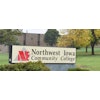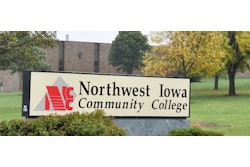WASHINGTON – Veteran higher education leaders, sparring over whether the U.S. workforce will need to increase its production of college graduates to remain a “world class” economic power, found common ground in urging that universities be held more accountable for providing a high-quality education that prepares students for the labor market. During a live Internet broadcast, the debaters, including United Negro College Fund president and CEO Dr. Michael Lomax and former U.S. Education Secretary Margaret Spellings as partners, waged vigorous defenses of their respective positions but found agreement on how higher education’s historic lack of accountability has hindered U.S. college and university productivity.
Hosted by the University of Virginia’s Miller Center for Public Affairs this past Friday, debaters considered the resolution: To remain a world class economic power, the U.S. needs more college graduates in the workforce. Lomax and Spellings spoke in favor of the resolution. Dr. Richard Vedder, director of the Center for College Affordability and Productivity and an economics professor at Ohio University, and George Leef, director of research at the John William Pope Center for Higher Education in Raleigh, N.C., argued against the resolution.
“One of the things we failed to ask of higher education is some accountability,” Spellings said.
Universities need to “get a handle on costs, productivity, efficiency and quality—and we are not going to do any of those things without information,” she said, urging that universities begin publishing their graduation rates. Serving as U.S. Education Secretary from 2005 to 2009, Spellings now leads a public policy consulting firm in Washington
“We don’t ask, ‘What did you know when you got here?’ and we don’t measure how much you learned; the degree is a proxy for that,” Lomax said. “I think it is up to government to hold them to a standard, and part of that standard should be around persistence and completion and graduation.”
Lomax formerly served as president of Dillard University and taught literature at Morehouse College, Spelman College and the University of Georgia.
“We don’t measure them,” Vedder said. “How do we know what students at the University of Virginia knew last year, compared with [what they knew] 10 years ago or 20 years ago? We don’t know.”
Debaters on both sides of the resolution also agreed that U.S. college graduation rates are relatively low because too many students who enter college are unprepared. Colleges and universities graduate less than half of the students who enroll, and, according to U.S. Census data, the percentage of Americans who have earned a bachelor’s degree is 27 percent. The Obama administration is pursuing policies in higher education aimed at helping the U.S. regain the highest proportion of graduates in the world by 2020.
However, taking public policy measures to expand the number of college students would be a waste of federal and private sector resources and would increase the dropout rate, according to Leef.
“If we expand higher education more, we are going to be dipping further into that pot of students who have very weak skills who are simply going to be spinning their wheels,“ Leef argued.
“If we mindlessly push students into college, we will have more students with debts taking $10-an-hour jobs and failing,” Vedder added.
Nonetheless, Spellings and Lomax said that lack of preparation in high school should not stop students who want a college education from getting one.
“We haven’t set them up to be college ready,” Spellings said. “We send them to high schools where teachers are often the least qualified, where we have limited amount of rigor.”
As American work force demographics change, the country’s education system needs to start making sure that even high school graduates who arrive on campus less prepared for academic studies get their degrees, Lomax noted.
“Institutions are not providing the remediation and the support students need to graduate,” he said. “Baby boomers are about to leave the work force. The generation behind us is not achieving the same level of education as we did. Other countries have a highly educated pipeline.”
Still, Vedder and Leef argued that a college degree has become a commodity that has lost its value. The two also argued that the U.S. is producing more college graduates than it needs.
“College has been oversold,” Leef said. “The U.S. has become the most rigidly credentialed in the world. As we introduce more degrees, it will ratchet up the requirement for jobs.” Leef noted that the percentage of degree holders in the U.S. isn’t growing because “a lot of people have figured out it’s a lot of cost for a little benefit.“
Vedder agreed. “We have too many people getting degrees. There are not enough jobs for them,” he said.” Fifteen percent of mail careers have college degrees. Now you have to have a college degree to deliver the mail, whereas in 1970 you didn’t.”
Spellings and Lomax countered that U.S. labor market demands reflect an unmet need for skilled, college-educated professionals.
“Even now with unemployment at 10 percent, there are high-quality jobs and no one to fill them,” Spellings said.
“The marketplace tells us we need more college graduates by 2012, but we will have a shortage of 3 million college graduates,” Lomax said.
Both teams said that colleges are not training their students to compete in the global and domestic labor market.
“There is a disconnect between training in college and labor market needs,” Vedder said.
“College is neither necessary nor sufficient for people learning how to do their jobs,” Leef said.
Spellings and Lomax agreed that the U.S. higher education system needs retooling to meet market demands and that the system itself needs to learn to adapt to the needs of the new work force.
“We need a higher education system that is responsive to the job market,” Spellings said.
“The likelihood is that in the 21st century not only are a very large number of college graduates going to have had interruptions in their pursuit but they are going to attend multiple institutions,” Lomax said.
The debate, recorded in front of a live audience at the National Press Club in Washington, D.C., was sponsored by the Miller Center, PBS, and the Lumina Foundation.
In addition to the economic arguments for maintaining an educated work force, Jamie P. Merisotis, Lumina president and chief executive officer, sees other benefits of producing more college graduates in the U.S.
“People with college degrees are not only good workers and productive participants in our democracy, but they are effective citizens,” Merisotis said. “The idea of being best in the world, being ‘world class’ I think is a benchmark, but the main reason shouldn’t be the competitive reason. The main reason should be to advance our own well-being and our own collective future.”
The debate will air on PBS stations across the country beginning mid-March.















